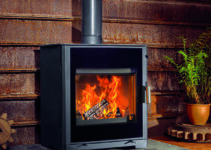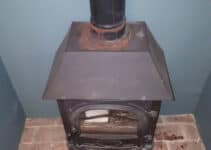The importance of having a log burner in your house is indisputable. It gives the room additional ambiance and warmth, specially at night and during the winter when cottages struggle to retain heat.
Nevertheless, people don’t tend to think about the regulations of having a woodburner in their house. Do you know the rules and the consequences of not adhering to them?
It even gets more confusing when someone inherits a house with a log burner installed. How should one proceed under such circumstances?
The bottom line is that most house owners need to learn how to get a log burner signed off. Here’s a guide on how to be compliant if you have a log burner in your house.
Who Can Sign Off A Log Burner?
The person who can sign off a log burner depends on who installs it. As a homeowner, you can hire a professional or do it yourself.
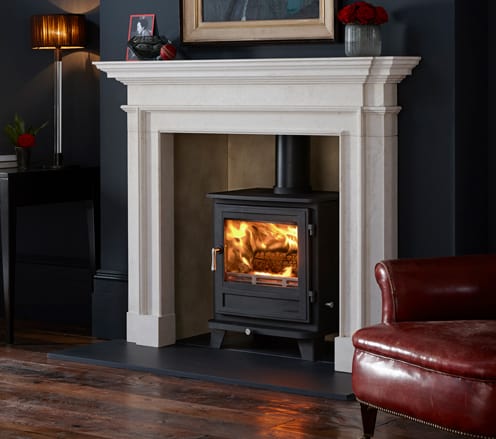
Professional Installation
In most cases, people opt for professional assistance. That’s understandable since matters concerning fire are sensitive, and no one wants to risk their safety and that of their property, including the house.
If you choose this route, hire an engineer with a HETAS certification. It is a large professional body regulating the installation of stoves, including log burners, in the UK.
Rest assured that HETA won’t certify just anyone. These professionals have the qualifications, skills, and experience to install a safe log burner.
Due to these same reasons, the professionals are allowed to sign off a log burner. They will sign it off upon installation, and you shouldn’t bother contacting the building control for compliance.
Do-It-Yourself Installation
On the other hand, if you can install a log burner, you need not hire a professional. There is no regulation against people installing it by themselves anyway.
Some homeowners go for it because they tend to save the money spent on hiring professionals. As tempting as it sounds, avoid DIY installation if you can’t give the installation the justice it deserves.
Installing one is complicated, and one can’t afford to get it wrong due to the dangers and safety concerns. Hence, one must perform these DIY installations under the keen supervision of a professional.
Be sure to notify the regulating agency after completing the log burner project. The local council’s Building Control will approve your wood burner if they deem it safe.
Unfortunately, if your project is subpar, don’t count on Building Control to approve it. The back and forth can continue until they are content with the installation of your log burner.
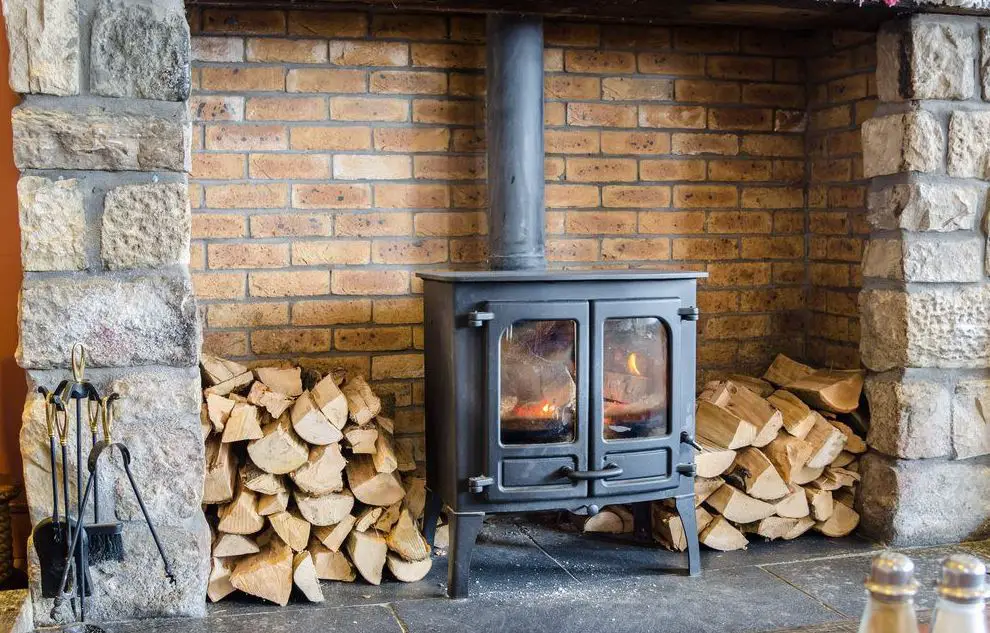
How to Get a Log Burner Signed Off By Local Authority?
The process of getting this done is relatively easy. It is straightforward since you only have to follow these steps;
- Visit your local Building Control website usually, a department
- Look for the building notice and full plans application and fill in the former segment
- Upon filling out the form, expect one of the department’s officials to contact you, although there are times when you prompt them because the wait can be quite long
- A visit is then scheduled, which is before you commence building the log burner
- On the day of the visit, expect several questions you need to discuss and a piece of advice on how to install it
- Some ask you to keep sending them photos throughout the installation process
- Others will visit again once the installation is over
- The bottom line is that the process isn’t cast in stone and hence differs from one officer to another
When you work with Building Control, it is good to know the specific department’s role in this process. Throughout the installation process, the officers should give you the guidance you need regarding building regulations.
Once completing the project, they should check whether the log burner has been installed as per the regulations.
What Happens If You Don’t Have A HETAS Certificate?
In most cases, the lack of a HETAS certificate means that you are not certified to install, commission, service, or maintain solid fuel appliances, flue and chimneys in accordance with the relevant building regulations and standards.
It could lead to legal and financial consequences, such as fines, penalties, and even criminal charges, if you carry out such work without the proper certification.
A HETAS certificate is vital proof of compliance with these building regulations. The certification often comes hand in hand with a Chimney sweep Certificate.
Two instances could lead to the absence of this HETAS Certificate. These reasons determine how to proceed if it is missing.
Lost HETAS Certificate
First, it could be that you lost the certificate. If that’s the case, you may only have to do a little.
Contact the local building control to enquire about the HETAS certificate signed against your house. Ask the respondent about the reference number.
Take note of it and then call HETAS to get a copy of the certificate.
What’s the need to call the local authority if I hire a professional to install it? Whereas you didn’t call the local authority to sign off your log burner, the professional must do it. Consequently, the building control department has all the records.
Remember that it is only a wise idea if you know that the log burner was signed off after installation. It brings us to the second reason you don’t have a HETAS certificate.
Non-Signed Off Log Burners
In other cases, it is as simple as the log burner not being signed off after installation. In most cases, people will install one and choose not to involve the local authority.
Under such circumstances, the HETAS certificate will be unavailable. So, how should you proceed?
You should call the local authority to evaluate the log burner. If satisfied with its safety, expect the department to sign it off.
Alternatively, remove the log burner and remember that it could lower the value of your home.
Again, only contact the local authority if you are sure the log burner was signed off. It will risk your indemnity insurance.
Even if you have just lost the HETAS Certificate, try to replace it. That’s because most, if not all, solicitors will only accept their clients to buy a house if it has this compliance. It has seen a delay in the sale of a property.
Can I Legally Fit My Own Log Burner?
You don’t have to go out of your way to look for a professional to install a log burner if you can. If you are a DIY enthusiast, this could be yet another moment to shine and satisfy your passion.
However, don’t let your emotions blind you. The task ahead will only succeed if you have what it takes to handle it squarely.
Ensure you have what it takes to put up a chimney or flue. Ventilation is mandatory to control smoke and heat from the log burner fully.
Remember to install it along the rear or side of the house. You will also be working on the roof hence the need to be good at completing the log burner completely.
The list of your worries is quite long once you take up the project yourself. For instance, buy a high-quality hearth to control heat effectively. Failure to buy one that meets the requirements can lead to damaged flooring.
The flue, vent, and stove pipe you purchase should also be suitable for your log burner. There are also important regulations regarding the flue pipes‘ bends, which you must adhere to.
Control the room’s ventilation as well. Whether you install the flue on the external or internal wall is up to you.
So you can confidently install the log burner yourself. However, ensure that you do it right, or you can forget the signing off.
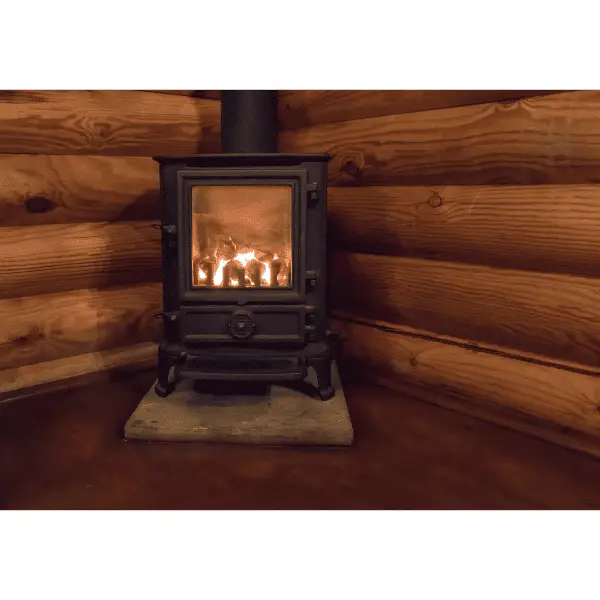
Do You Have To Have A HETAS Certificate For A Log Burner?
Again, the answer to this depends on several factors. One of them is where you reside.
For example, if you live in Wales and England, you must have a HETAS certificate for a log burner. Installation of multifuel or wood-burning stoves falls under Building Regulations.
If you want to install solid fuel appliances, recline or install a chimney flue, you must adhere to the regulations. On the other hand, Scotland residents don’t have to have a HETAS certificate for a log burner.
Regardless of your area of residence, the nature of the building also determines whether you need the certification. After all, it isn’t applicable when installation is done in inhabitable places. Excellent examples include caravans, garages, and sheds.
How Much Does It Cost To Get A HETAS Certificate?
Again, the cost of the compliance certificate depends on how you install your log burner. What you pay when you hire a professional differs from what you incur when installing it yourself.
How Much is a Log Burner Certificate?
If you hire a HETAS-certified professional, the cost can be as low as £24 plus VAT. It is the best option for getting the certification.
On the other hand, you will have to inform the local authority if you install it yourself. One applies for a building notice which is more expensive than HETAS charges.
The charges differ from one project to another since they have different values. Typically, a task valued at £2000 will cost you £150.
Does that make hiring a professional better than doing the installation yourself? Honestly, that’s far from the truth because the latter save you labor cost.
So, factor in that as well when deciding on how to get this certification.
No HETAS Certificate For Wood Burner
If there of one thing you shouldn’t take lightly, it is a HETAS Certificate for a wood burner. That’s because it has dire consequences regardless of whether you don’t have one.
If you lose it, it could cost you money to replace it. It may be small, but what’s the harm of saving even the little? Savings come in handy during rainy days.
Besides, solicitors will always ask for the certificate when selling your home. It could delay the sale, and your offer today may be lower than what you get later.
If you don’t have one because you chose not to inform the local authority, the professional or homeowner will face the law. The incompliance could attract a fine of up to £5000.
Conclusion
How to get a log burner signed off depends on the installation option. If you hire a HETAS-certified professional, the personnel will sign it off upon installing it.
On the other hand, if you do the installation, you need to inform the local authority. It turns out that you should inform Build Control before commencing the project.
If you don’t have a HETAS certificate for your log burner, ensure that it has nothing to do with not informing the local authority. Even if it is a case of misplacing it, make an effort to replace it.
Its absence, regardless of the reason, has dire consequences. The best option is to ensure that you have one.
Why not when the cost and process of acquiring it are a little? It is also way fairer than the consequences of not having one.

